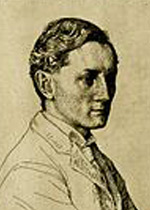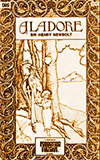Sir Henry Newbolt
| Full Name: | Henry John Newbolt |
| Born: | June 6, 1862 Bliston, Staffordshire, England, UK |
| Died: | April 19, 1938 Kensington, London, England, UK |
| Occupation: | Barrister, Writer |
| Nationality: | British |
| Links: |
|
Biography
Henry John Newbolt was born in Bilston, son of the vicar of St Mary's Church, the Rev. Henry Francis Newbolt (1824-1866), and his second wife, Emily née Stubbs (1838-1921). After his father's death, the family moved to Walsall, where Henry was educated.
Newbolt attended Queen Mary's Grammar School, Walsall, and Caistor Grammar School, from which he gained a scholarship to Clifton College, where he was head of the school (1881) and edited the school magazine. His contemporaries there included John McTaggart, Arthur Quiller-Couch, Roger Fry, William Birdwood, Francis Younghusband and Douglas Haig. Graduating from Corpus Christi College, Oxford, Newbolt was called to the bar at Lincoln's Inn in 1887 and practised until 1899.
His first book was a novel, Taken from the Enemy (1892), and in 1895 he published a tragedy, Mordred; but it was the publication of his ballads, Admirals All (1897), that created his literary reputation. By far the best-known of these is "Vitaï Lampada". They were followed by other volumes of stirring verse, including The Island Race (1898), The Sailing of the Long-ships (1902), Songs of the Sea (1904) and Songs of the Fleet (1910).
In 1914, Newbolt published Aladore, a fantasy novel about a bored but dutiful knight who abruptly abandons his estate and wealth to discover his heart's desire and woo a half-fae enchantress. It is a tale filled with allegories about the nature of youth, service, individuality and tradition.
Works in the WWEnd Database
|
|
|
|
|
|||||||||||||||



















 Full Details
Full Details







